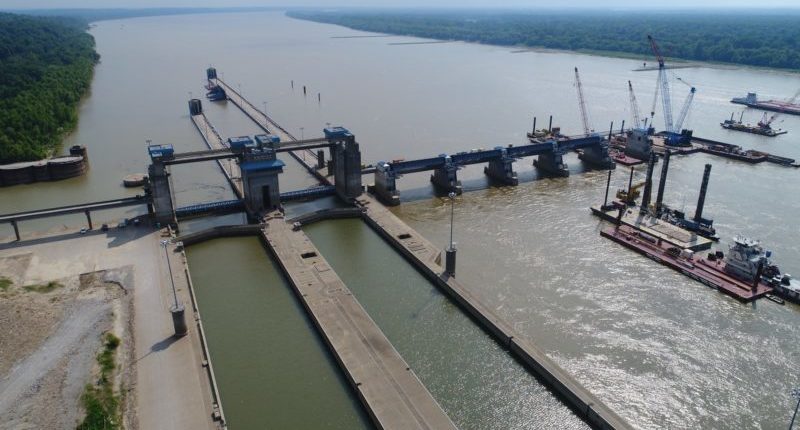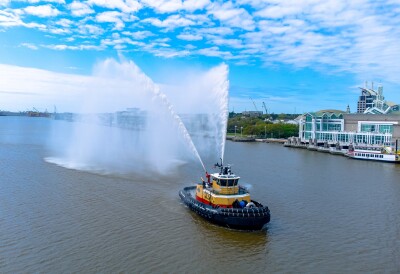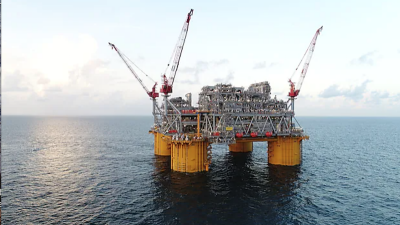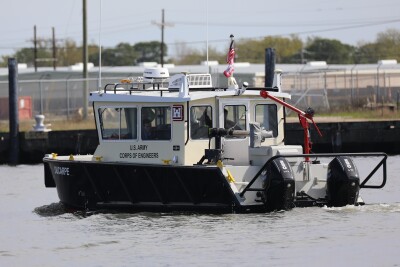President Trump’s plan to pass a comprehensive infrastructure plan - which was a cornerstone of his campaign and rolled out with much fanfare in February, appears to be dead for this year, as lawmakers run skittish before the fall mid-term elections.
With the departure in April of DJ Gribbin, the president’s infrastructure adviser, and divisions in Congress over how to fund a massively expensive plan to improve the nation’s roads, bridges, ports and waterways, there doesn’t seem to be the political push anymore to pass such a complicated and costly plan.
At a rally in Ohio a few weeks ago, Trump acknowledged the challenges and said his proposal would “probably have to wait until after the election” in November, and he blamed Democrats for not working with him. Top leaders in both the House and Senate have made similar statements about the bill’s fate this year.
Instead, lawmakers are focusing on two transportation sectors that need immediate legislative attention and can garner bipartisan support in an election year - aviation and waterways - rather than tackling the more controversial issues involved in the broader infrastructure package.
House Republican leaders, led by Rep. Bill Shuster, R-Pa., chairman of the House Transportation and Infrastructure Committee, have made action on a bill to reauthorize the Federal Aviation Administration, which expires Sept. 30, and another to authorize federal water projects through the Water Resources Development Act, top priorities for passage in the months ahead. Shuster, who is retiring after this year, wants to keep WRDA on a two-year reauthorization track, which he says is important to provide certainty to waterways projects.
“Congress appears to be approaching the president's infrastructure proposal in piecemeal fashion,” said Mike Toohey, president and CEO of the Waterways Council, Inc., an industry-supported group that supports strong funding for the nation’s lock and dam system.
“The House cleared the first "R" in transportation infrastructure last Friday with the passage of the "Runway" initiative (FAA reauthorization). Next "R" up is rivers, with WRDA heading for mark-up in the House Transportation and Infrastructure Committee the fourth week of May," he said in a statement to WorkBoat.
WRDA will be an important bill for advancing key policies on waterways funding. WCI is seeking to increase the federal contribution paid into the dedicated trust fund that finances river navigation construction. They want the current 50-50 arrangement to be 75% federal and 25% from industry gasoline taxes in order to maintain the current $400 million construction level that is being largely consumed for completion of the Olmsted Lock and Dam project on the Ohio River in Illinois, located near one of the busiest spots on the inland river system.
“That project will finish in August and we’ll drop back to a $220 million program, which will further extend timelines on other priority waterways projects,” said Deb Calhoun, WCI’s senior vice president. The group is also proposing that 10% of revenue from federal hydropower be placed in the trust fund.
It’s not yet clear how WRDA’s passage might affect what is eventually included in a broader infrastructure plan involving waterways funding. The tug and barge industry, which uses the river system to move an array of commodities, was unhappy with parts of the plan rolled out by Trump in February.
They objected to proposals to charge user or lockage fees on commercial users of the rivers, and to shift away from the traditional federal responsibility for inland navigation to private investment. The fees would be in addition to the 29-cent-per-gallon diesel fuel tax that barge operations already pay into the federal trust fund. The plan was a big disappointment to the industry, which had high hopes for the infrastructure package and had largely supported the president’s election.
Delaying the proposal to next year would be a plus for the industry, as it gives lawmakers and barge companies more time to address the industry’s concerns, and to concentrate on making positive policy changes in WRDA for waterways funding.
“We look at it as potentially two bites at an infrastructure apple,” Calhoun said. “WRDA has a better chance of moving this year successfully and the administration proposal is not helpful in its current form.”





